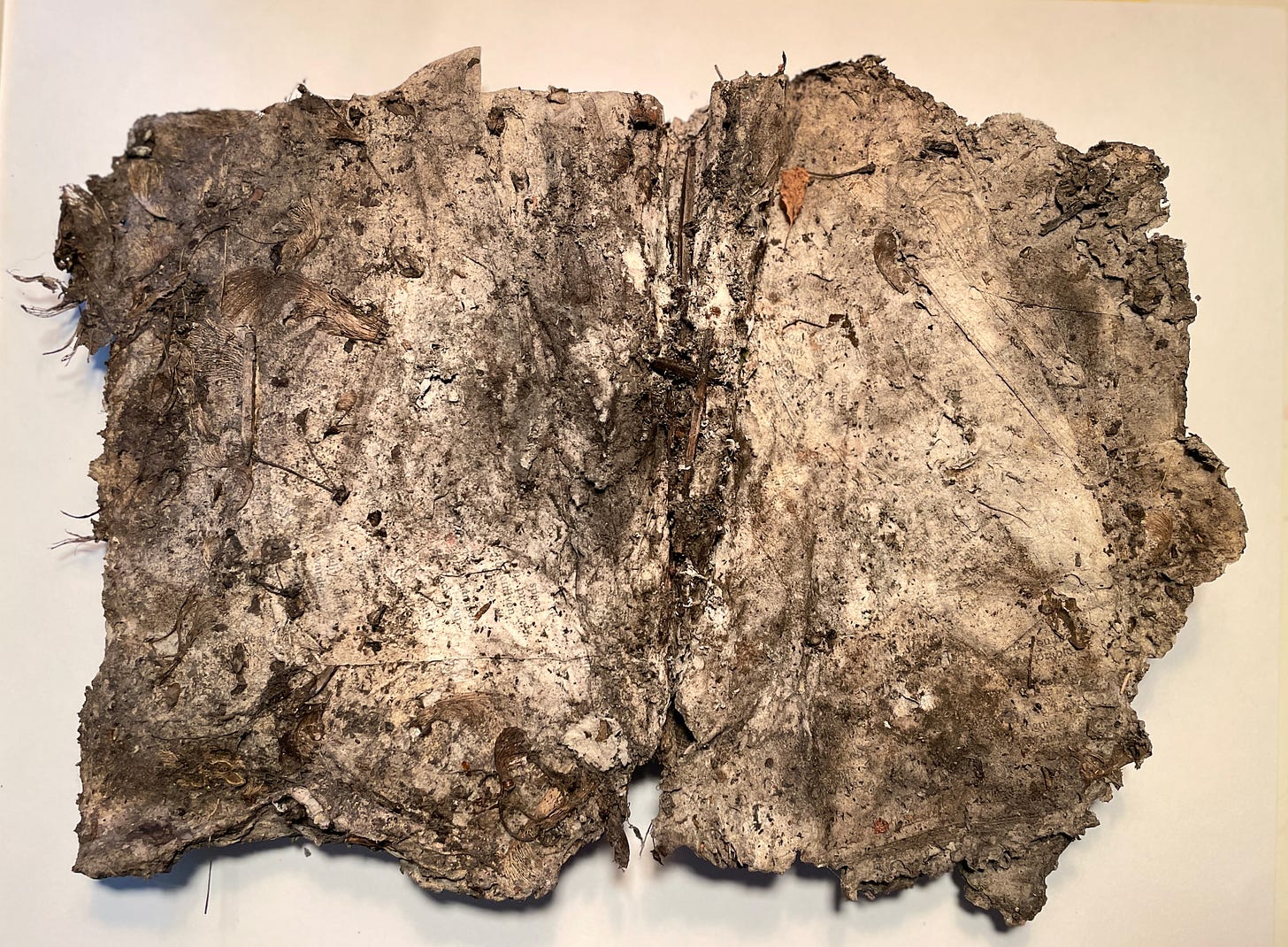Burying the dictionary
What does it mean to bury a dictionary? That the words are silent, silenced? That they’ve been killed, assassinated, died?
Or is it more akin to planting seeds and, come spring, there’ll be sprouts? Is the language returning to the earth, to where it came from and then, after a length of decay, there is transformation, rebirth. The words becoming part of the larger ecosystem. Are they mulch? Or do they bear the trace of what they have been through, their struggle for air, for legibility, for communication?
It’s an old practice in traditional Jewish culture not to destroy books or papers that are sacred, that have the word for God written on them. Instead, they are stored (see the remarkable Cairo Genizah where a treasure trove of centuries-old books was found, saved from destruction for this reason) and then often buried in a cemetery with ceremony and prayers as if they had been a living thing. A sacred book as a living thing that needs to be treated with respect, dignity, and care.
Once I visited a Sikh temple while holidaying in India. We were shown what looked like a child princess’s bedroom. Beautiful pink bed, sumptuous carpet and tapestries. What was it? It was where they put their sacred book to sleep at night.
For the past several years, I have taken books and left them outside to experience the elements. I’ve hung them from trees. I’ve buried and then exhumed them.
The image above and the video below is of what’s left of a thesaurus that I put outside under leaf mulch and the open sky. It’s been a year or two. The action of burying evokes the slow passage of time, the processes of transformation of organic matter. It’s a very slow poem, a slow music, maybe a deliberate and unfolding parade that even snails would consider stately and sloths, if they knew what glaciers were were, would think to be glacial in its progress. (I do sadly note that glaciers now retreating due to climate change, no longer move “glacially.”)
I created a composition made by recording of an old out-of-tune piano that we were given and sits in our living room. I love the piano’s wonky timbres and tuning. In keeping with the slow transformation of the buried book, I slowed some of the piano sounds down. What is time, anyway? What is a word over time? When does its meaning change, when does it become another word, when does it change, breakdown or cease to exist?
In addition to the piano, I’m playing clarinet. The wooden clarinet and reed. I think of these sounds made from the vibrations of wood as if I’m translating the paper, trees, roots. The wooden piano with a metal sound board and strings. The sounds of time and matter. Of meaning slowly changing. Of some fundamental respect, recognition and observation of words, wood, books, earth, weather, living.



